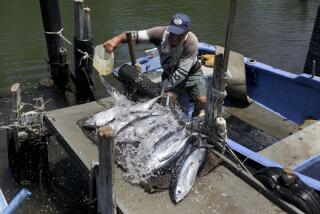Documentary looks at ‘narco-dictatorship’ in Mexico
Director Bernardo Ruiz has followed up his 2012 film about journalists killed for reporting on drug trafficking in Mexico with a new documentary, “Kingdom of Shadows,” that offers different perspectives on the U.S.Mexico drug war.
“I spent two years covering the risks journalists face in Mexico (in the documentary ‘Reportero’), and when I finished I wanted to do another one to bring together different voices,” Ruiz told EFE in an interview.
“A more complex picture of the war on drugs, of the drugtrafficking conflict, was needed. That was the source of inspiration for this work,” Ruiz, a native of the central Mexican city of Guanajuato who was raised in Brooklyn, said.
In “Kingdom of Shadows,” which premieres in the United States on Friday, Ruiz presents three viewpoints on the human cost of the war on drugs in both the United States and Mexico.
The story is told partially through the eyes of Sister Consuelo Morales, a Monterrey, Mexicobased nun and rights activist.
Her group fights to defend victims of both the security forces and violent drug cartels and has pressed the Mexican government to investigate thousands of enforced disappearances (those carried out directly by security forces or with their complicity) stemming from the war on drugs.
Also appearing in the Spanish and Englishlanguage film are a former drug trafficker named Don Henry Ford, who describes his activities before serving a prison sentence for marijuana smuggling; and Oscar Hagelsieb, the son of undocumented immigrants who now works as a U.S. Department of Homeland Security agent.
“I have a personal interest in the subject,” the filmmaker said.
“I was born in Mexico to a Mexican father and an American mother. I grew up between the two countries and I’m fascinated by the relations between the two, which can’t even agree on the name of the river that separates them (known as the Rio Bravo in Mexico and the Rio Grande in the United States). The different visions of reality that Mexico and the U.S. have fascinate me,” Ruiz said.
He also said he wanted to continue combining journalism and cinema because of what he called a lack of thorough reporting in the U.S. media on drug trafficking in Mexico.
“It’s not a journalism that’s very constant. Sometimes it’s very light and devoid of context. That’s why I wanted to delve deeper into these stories,” the filmmaker added.
“Kingdom of Shadows” puts the number of people officially listed as missing or disappeared since 2007 in Mexico at 23,000, although Ruiz said that figure continues to climb and now stands at 26,000.
“Mexico is living under a shadow or a narcodictatorship, which activists call the narcostate,” he said, using the term for a geographical area controlled or corrupted by drug cartels.
“It’s important to show that link with the disappearances of the Southern Cone dictatorships (of the 1960s, 1970s and 1980s). In the United States, these disappearances are not thought of as state crimes, but rather as disorganized crimes. It’s surprising to many to see how they recall the cases in Argentina and Chile,” the director said.
“There’s a sense of fear on every corner and many live under this unacceptable fear. Even people who have no links to drug trafficking are under threat,” he said.
The filmmaker says it is difficult to remain hopeful but that he sees a “ray of light” in the response of Mexican civil society, which has held protests to demand justice for the September 2014 disappearance of 43 college students and the July 31, 2015, murder of photojournalist Ruben Espinosa.
“The potential change will come from the people. In their faces I see a profound sadness, but also dignity and an enormous desire for change,” Ruiz said.








